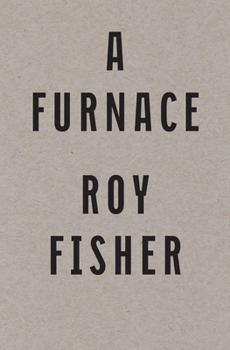A Furnace
"Perhaps the last great modernist poem, Roy Fisher's A Furnace offers an alternately brightening and thickening materialization of landscape, history, and thought. From its opening bus ride along industrial roads in Birmingham, England to its final image of snails creeping up fennel stalks, A Furnace is a surprising, prodigious, spiraling yet hewn work . . . For all his registration of the built and of material history, Fisher is equally attentive to the shape of clouds, 'the massing of a mood, ' the gods one might have thought departed. One finds here as well a rerouted pastoral, an unsentimental pathos, a profound tenderness--for an old working woman on the street, for Fisher's own humble ancestors, for the figure of Achilles, brick, tarmac, warehouses, hillsides, specific rivers, the masses of men and women estranged from their own conditions and histories. For all his forging fire, the poet emerges as akin to the quality of light he catches, 'a pressing / medium, steady to a purpose.' To think that in Thatcher's England, Fisher was writing A Furnace forged, incised, in which 'a brilliance strikes out perpetually.'"--Maureen N. McLane





